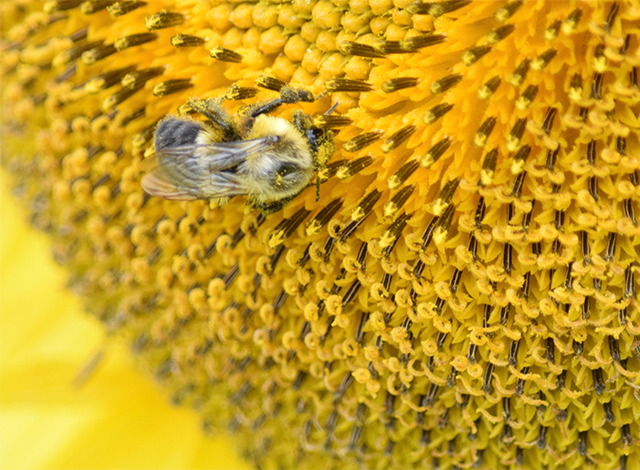LAURIE WEIR
While Canadians watched Prime Minister Mark Carney handle high-stakes trade tensions with U.S. President Donald Trump this week, a different kind of power play was unfolding closer to home — and it’s flying under the radar.
The Ford government’s recently tabled Bill 5 proposes sweeping changes to Ontario’s environmental oversight, including the repeal of the Endangered Species Act. Critics say it hands developers a fast track, weakens species protections, and concentrates control in Cabinet with little accountability.
If passed, Bill 5, Protect Ontario by Unleashing our Economy Act, 2025, will repeal Ontario’s Endangered Species Act, replacing it with a hollow “Species Conservation Act” that appears tailor-made to let developers run rampant across what little critical habitat remains. It’s a fast-track to extinction for dozens of species already hanging on by a thread — and a gift-wrapped free pass for industry.
Premier Doug Ford’s government has tabled Bill 5, a sweeping piece of legislation that promises to “protect Ontario by unleashing our economy,” but this bill does not protect Ontario. It sets fire to the very legislation designed to preserve what’s left of our vanishing biodiversity.
Let’s talk about what we stand to lose.
Take the Blanding’s turtle, for example. This slow-moving, long-living species, classified as threatened, is seldom spotted in wetlands across eastern Ontario, including the Rideau Lakes region and parts of the Frontenac Arch. Its habitat, mostly wetland and shallow marshes, has been fragmented by roads, agriculture and shoreline development. Under Bill 5’s new rules, “habitat” would be defined narrowly as a nest or den — not the broader wetland system the turtle relies on to forage, bask, migrate or breed. It’s like protecting someone’s bed but bulldozing their kitchen, bathroom and front door.
The monarch butterfly, once a common sight across southern Ontario, is listed as a species of special concern in Ontario — not yet endangered or threatened, but facing real risks due to habitat loss and climate pressures. It relies on milkweed, which grows in open fields and roadsides, areas frequently targeted by industrial development. The current act required protection of the entire life-cycle habitat. Bill 5 eliminates that. With the flick of a cabinet pen, entire ecosystems can be erased, replaced by an online registration system where developers simply click “submit” — no review, no oversight, no accountability.
And then there are the bees; the unsung heroes of Ontario’s food system. Native bees and other pollinators are in sharp decline due to habitat loss, pesticide use and climate disruption. Bill 5’s removal of wide-scale habitat protections leaves pollinator corridors, meadows and wildflower patches vulnerable to destruction. Without pollinators, crops don’t get fertilized. Without crops, we don’t eat. The science is clear: no bees, no food, no future.
The government insists these new Special Economic Zones will still uphold high operating, safety and environmental standards. But the legislation gives Cabinet sweeping authority to alter or remove regulatory requirements — and nowhere does it guarantee Indigenous consultation or independent scientific review. That’s not balance. That’s a blank cheque.
Indigenous communities, where traditional territories overlap with these biodiverse landscapes, have been sidelined in the process. The bill’s proposed Special Economic Zones would allow the provincial Cabinet to override local and provincial laws, bypass Indigenous consultation, and create lawless industrial corridors. These are not just zoning changes. These are bulldozers aimed at the heart of reconciliation.
Ontario’s Endangered Species Act, introduced in 2007, was once seen as a gold standard in North America. Now it’s being gutted in the name of economic convenience. The government blames slow permitting and red tape for our stalled economy. But the truth is, our environmental regulations aren’t the problem. Our political priorities are.
Bill 5 is not a blueprint for prosperity. It’s a road map to irreversible ecological collapse — the kind you can’t undo with a policy reversal or election cycle. Once a species is gone, it’s gone. You don’t get a second shot.
What happened to the Greenbelt, health care or education? Is there reason to sound the alarm now?
It was announced today (May 7) that Leeds-Grenville-Thousand Islands and Rideau Lakes MPP Steve Clark has been newly appointed as Government House Leader. Now, the Ford government’s path to passing Bill C5 just got a whole lot smoother. Clark’s job? Manage the legislative calendar and prioritize government bills — meaning this dangerous rollback of environmental protections could be fast-tracked with little debate or oversight. The clock is ticking.
As of this writing, Bill 5 has been ordered referred to the Standing Committee in the Ontario Legislature. This is the stage where public hearings may take place, expert testimony can be heard, and amendments to the bill can be proposed before it returns for a final vote. It’s the most critical window for public input and scrutiny — and it’s happening now.
Public comments on the bill are open until May 17.



